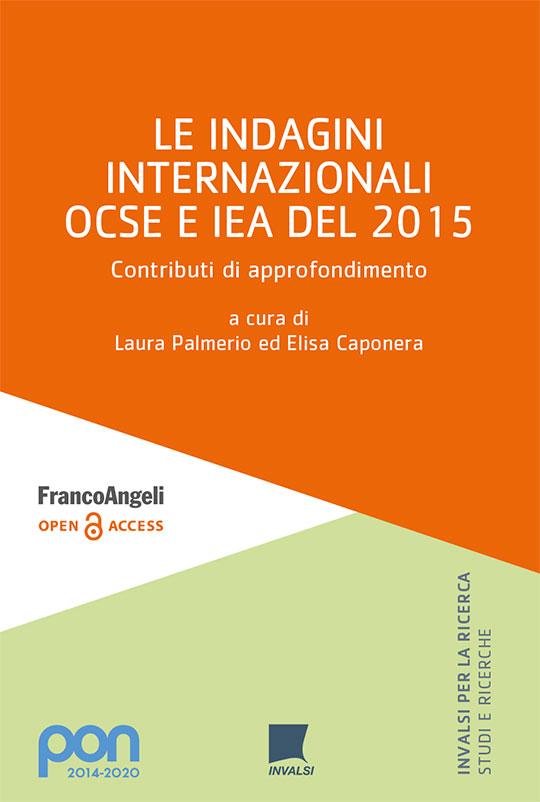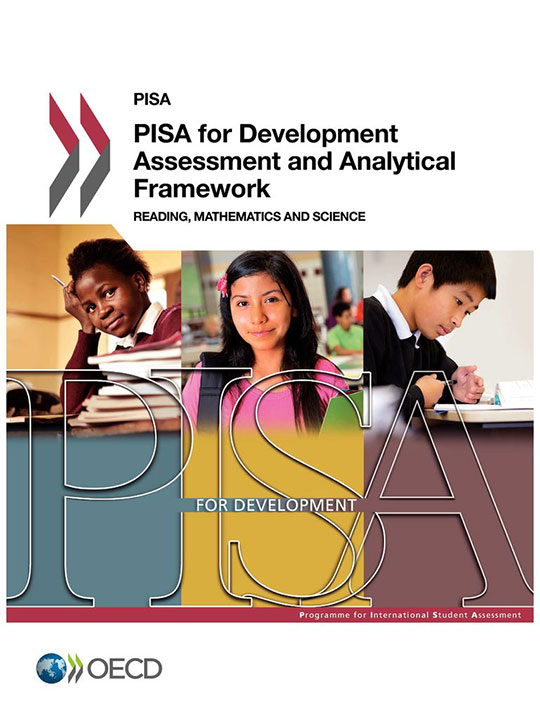Iscriviti alla Newsletter
® INVALSI – Via Ippolito Nievo, 35 – 00153 ROMA – tel. 06 941851 – fax 06 94185215 – c.f. 92000450582 | Privacy Policy – Cookie Policy – Note Legali
L’Indagine PIRLS è una delle rilevazioni internazionali promosse dalla IEA, ha come obiettivo la valutazione le competenze di lettura dei bambini.

A cura di: A cura di: Laura Palmerio e Elisa Caponera (2019)
Editore: Franco Angeli, Milano
Codice ISBN: 9788891794789
Il volume ha lo scopo di promuovere il valore scientifico dei dati rilevati dalle indagini internazionali OCSE e IEA svoltesi nel 2015 e presenta contributi di esperti e analisti in merito ad alcune delle competenze rilevate, focalizzando l’attenzione sul rapporto tra risultati e variabili di contesto. In particolare, per quanto riguarda le indagini IEA TIMSS e TIMSS Advanced, i contributi vertono sull’incidenza di comportamenti e contesti di apprendimento degli studenti sullo sviluppo delle competenze in matematica. In merito all’indagine OCSE PISA, invece, i temi discussi sono il rapporto tra fattori culturali, cognitivi e motivazionali e le relative evidenze empiriche, nonché l’esposizione mediatica online dell’indagine. Infine, un’ultima sezione tematica riguarda il rapporto tra variabili di contesto e competenze legate alla Financial Literacy.

Autore: OECD (2018)
Editore: OECD Publishing, Paris
Codice ISBN: 9789264305274
DOI: 10.1787
What is important for citizens to know and be able to do?” The OECD Programme for International Student Assessment (PISA) seeks to answer that question through the most comprehensive and rigorous international assessment of student knowledge and skills. As more countries join its ranks, PISA is evolving to successfully cater for a larger and more diverse group of participants. The OECD launched the PISA for Development initiative in 2014 to support evidence-based policy making globally and offer universal tools in monitoring progress towards the Education Sustainable Development Goal. Spanning six years, this unique pilot project aims to make the assessment more accessible and relevant to a wider range of countries, while maintaining the overall PISA framework and accordance with PISA’s technical standards and usual practices.The PISA for Development Assessment and Analytical Framework presents the conceptual foundations of the project, and covers reading, mathematics and science. PISA for Development has a school-based component and an out-of-school one. For the school-based component, a questionnaire about students’ background is distributed to all participating students. School principals complete a school questionnaire that describes the school, its students and teachers, and the learning environment. Teachers also complete a questionnaire about themselves, the school’s resources, their teaching practice and their students. The out-of-school respondents complete a background questionnaire, and their parent (or person most knowledgeable about them) answers a questionnaire about the youth’s background and childhood experiences. A household observation questionnaire is completed by the interviewer, and information about the location of the household is collected by PISA for Development National Centres.Nine countries participated in the PISA for Development assessment: Bhutan, Cambodia, Ecuador, Guatemala, Honduras, Panama, Paraguay, Senegal and Zambia.
® INVALSI – Via Ippolito Nievo, 35 – 00153 ROMA – tel. 06 941851 – fax 06 94185215 – c.f. 92000450582 | Privacy Policy – Cookie Policy – Note Legali